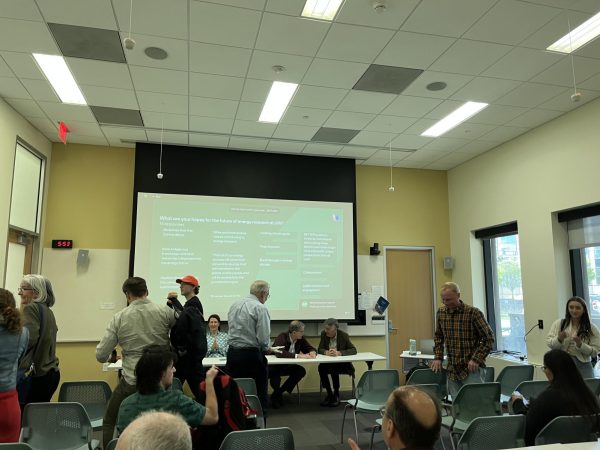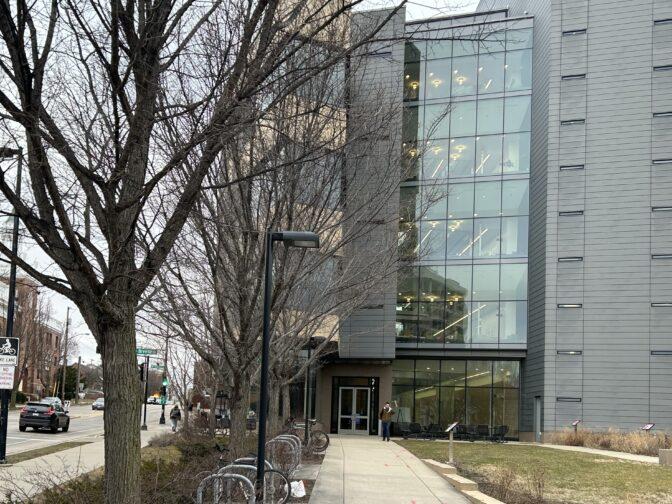In a recent study, a team of faculty and students in the University of Wisconsin Department of Life Sciences Communication revealed the absence of Black and Latinx communities’ perspectives in policymaking on environmental justice issues.
Assistant professor at UW and head author of the study Kaiping Chen said the researchers conducted the studies in October 2022 using public deliberation field experiments and computation text analysis to collect their data. They partnered with two Madison-based non-governmental organizations serving Black and Latinx community members to host a forum and discuss environmental justice issues.
The forum attendees were split into small groups and provided different types of educational materials on three different environmental justice issues, co-author and third-year LSC Ph.D. student Isabel Villanueva said. The information presented to the groups was communicated in three ways — bullet points, marginalized communities stories or infographics.
“We wanted to understand how the educational material revealed to the community members during the forum influences the content they share and their civic empowerment,” Chen said.
This study was a quasi-experiment, a method aimed to evaluate interventions tested on a non-random group. In this case, the authors were able to give different stimuli to the groups and compare the effects of the materials through their survey responses, Villanueva said.
The educational material and small-group discussion covered three environment-related topics, including energy saving at home, extreme heat and related health impacts, and green spaces as a mode of mitigating climate change effects, Villanueva said. These specific topics played a strong role in unveiling the communities’ nuanced perspectives shaped by education, income and gender.
In analyzing the participants’ written materials and intersectional identities, the researchers discovered significant differences in how the Black and Latinx communities perceive environmental topics and issues. They found the two marginalized communities have significant differences in what they want to learn and what they care about, Chen said.
“When it comes to environmental issues, it is important to think about how intersectionality perceives such problems,” Chen said. “It is important to look into sub-communities within the Black and Latinx populations rather than thinking of them as a homogeneous community.”
Participants from Latinx communities were more likely to discuss the health consequences of hot weather and differences in home appliances, while participants from Black communities were more likely to talk about ways to save energy at home and the benefits of funding, Villanueva said. Such differences can be linked to varying education levels and socioeconomic status between the two groups.
Throughout the forum, the experimenters asked participants to write down how they perceived each energy-saving topic, Villanueva said. By doing this, the authors integrated computational text-analysis methods to analyze the concepts and words the attendees wrote. This method allowed them to understand how the community members understood the environmental topics at hand and how the groups view issues differently, Chen said.
The researchers discovered the participants wrote a more diverse group of words under the infographic condition, Chen said. The use of infographics revealed the strength of visual information in increasing comprehension and civic empowerment within marginalized communities for these scientific topics, Chen said. This method underscores the importance of comprehension in communication design.
The paper is part of a three-component project funded by the Chan Zuckerberg Initiative. The project’s overall purpose is to dig deeper into how people approach community engagement to study environmental justice, Chen said.
Chen and co-principal investigator Corey Jackson built a digital website as a means of engaging more Black and Latinx communities in environmental justice issues. This online platform will be used for further engagement within marginalized communities, especially for those who were not able to attend the in-person forum, Villanueva said.
The LSC department at UW plays a strong role in exemplifying comprehensive approaches to public relations and community engagement. In analyzing how intersectionality perceives environmental issues, the authors push for a better understanding of community-engaged research within marginalized communities, Villanueva said.
“As science communication practitioners, it is important to think about how we can make these events have a more positive impact on people,” Chen said.
Hosting in-person events is also used as a means of increasing community engagement, Chen said. While the forum provided hard data to catalyze change, it also allowed the participants to make an impact in their community around environmental issues.
The LSC department at UW is one of the world’s leading science communication programs, according to its website. The research the department conducts translates scientific topics into accessible narratives to empower diverse communities and catalyze future research and policy reform.
“Moving forward, science communication can be used to tailor and work collaboratively with local NGOs [non-governmental organizations] and government officials,” Villanueva said. “Science communication practitioners can uncover differences and communicate the findings to government officials to help inform their policy decisions.”














